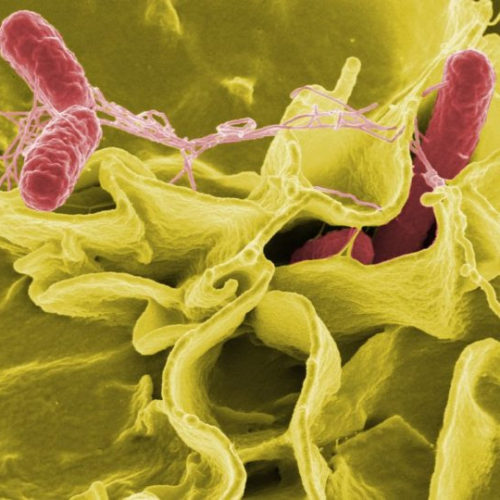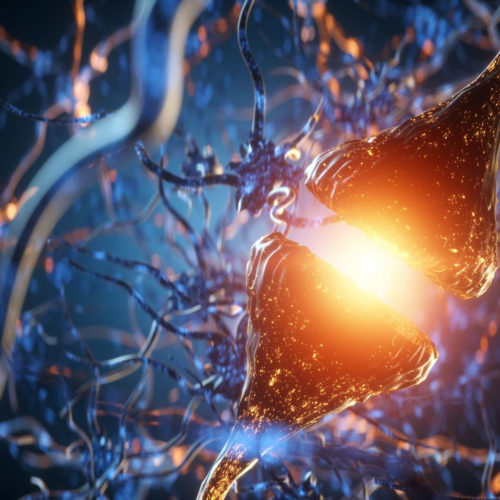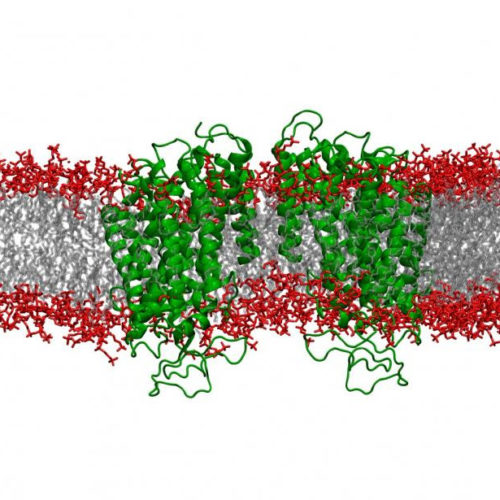The brain has an uncanny ability to enhance or reduce communication between brain cells. Whether or not communication is fast or slow changes the brain’s overall function. Understanding how these cells communicate within the brain is critical to understanding how our bodies and minds work together. Terunaga Nakagawa, associate professor of molecular physiology and biophysics,...
Tag: <span>disorders</span>
Salmonella biofilm protein causes autoimmune responses—possible link with Alzheimer’s, Parkinson’s
Scientists from the Vaccine and Infectious Disease Organization-International Vaccine Centre (VIDO-InterVac) at the University of Saskatchewan (USask) and Temple University in Philadelphia, Penn., have demonstrated that a salmonella biofilm protein can cause autoimmune responses and arthritis in animals. Salmonella was previously thought to only form biofilms in the environment, such as on food processing surfaces....
Researchers develop a portable blood ammonia detector
STANFORD UNIVERSITY A PROTOTYPE OF THE HANDHELD AMMONIA BLOOD DETECTOR AND ASSOCIATED TEST STRIPS, DEVELOPED BY RESEARCHERS AT STANFORD. view more CREDIT: THOMAS VELTMAN Seated around the dinner table, faculty affiliated with Stanford ChEM-H – one of Stanford University’s interdisciplinary institutes – spoke one-by-one, pitching ideas for collaborative research. Inspired by a recent medical conundrum,...
“Love hormone” oxytocin could be used to treat cognitive disorders like Alzheimer’s
Scientists discover for the first time that oxytocin could be a potential new therapeutic option for cognitive disorders such as Alzheimer’s disease TOKYO UNIVERSITY OF SCIENCE OXYTOCIN, THE HORMONE THAT INDUCE FEELINGS OF LOVE AND WELL-BEING WITHIN US, ARE FOUND TO REVERSE SOME OF THE DAMAGE CAUSED BY AMYLOID PLAQUES IN THE LEARNING AND MEMORY…...
Loss of a co-twin linked to heightened psychiatric risk
New findings suggest twins who survive the loss of their co-twin face an elevated risk of psychiatric disorders in the short and longer term. ELIFE The death of a twin, especially earlier in life, can increase the risk of their surviving twin being diagnosed with a psychiatric disorder, finds a new study published today in...
STUFF ( quercertin) IN CAPERS ACTIVATES KEY PROTEINS IN BRAIN AND HEART
A compound common in pickled capers, quercetin, activates proteins required for normal human brain and heart activity, researchers report. In a new study in Communications Biology, the researchers report that quercetin can directly regulate proteins required for bodily processes such as the heartbeat, thought, muscular contraction, and normal functioning of the thyroid, pancreas, and gastrointestinal...
Genetic editing milestone in mouse model of Rett Syndrome
Editing technique repairs mutant MeCP2 RNA and restores MeCP2 protein function RETT SYNDROME RESEARCH TRUST LEAD AUTHOR, JOHN SINNAMON, AND PRINCIPAL INVESTIGATOR, GAIL MANDEL. view more CREDIT: RETT SYNDROME RESEARCH TRUST A genomic error that causes Rett Syndrome, a serious lifelong neurological disorder, can be corrected in the brains of mice by rewriting the genetic...
What to know about sleep myoclonus
Sleep myoclonus is involuntary, nonrhythmic muscle twitching that occurs either as a person falls asleep or during sleep. Sleep myoclonus is not a disease but a symptom of several different conditions. Sleep myoclonus can also happen without a known cause. In this article, we discuss what sleep myoclonus is, its causes, and how doctors treat...
Discovery of a novel drug candidate to develop effective treatments for brain disorders
The study published in Chem is fundamental to develop pharmacological drugs for the treatment of core symptoms in Down syndrome, autism and other brain disorders. Researchers aim to create a start-up company with the support of interested investors ISTITUTO ITALIANO DI TECNOLOGIA – IIT THE PROTEIN NKCC1 IS A TRANSPORTER OF IONS IN THE BRAIN;...
Putting genomics into practice to combat common diseases
Genomics carries great expectations: the power to help health-care providers assess and assist their patients in managing their individualized risks for common, serious medical conditions, such as cancer and heart disease. However, how to effectively meld genetic risk assessments into health care is a complex question. Several medical research institutions across the nation, including UW...





